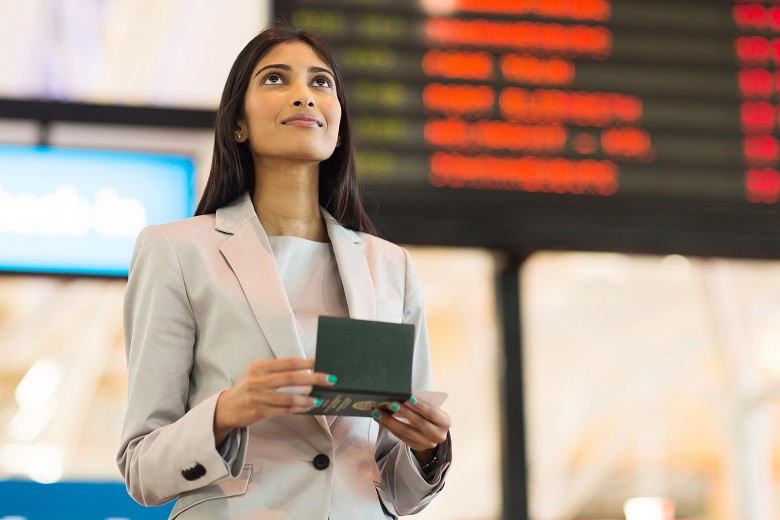November 21, 2024
Visa for Indian
Unlock the Wonders of Vietnam: How to Obtain a Tourist Visa as an Indian Traveller 2025
Dreaming of exploring the enchanting landscapes and vibrant culture of Vietnam? As an Indian traveller, you may be wondering how to obtain a tourist visa to unlock the wonders of this Southeast Asian gem. Look no further! In this comprehensive guide, we will walk you through the step-by-step process of obtaining a tourist visa for Vietnam, making your travel dreams a reality. From the necessary documents to the application procedure, we’ve got you covered. Discover the rich history of Hanoi, cruise through the stunning Halong Bay, or immerse yourself in the bustling streets of Ho Chi Minh City – Vietnam has something for every adventure-seeking traveller. So, let’s embark on this journey together and uncover the secrets to obtaining a tourist visa for Vietnam as an Indian traveller. Get ready to experience the breathtaking beauty and warm hospitality of this extraordinary destination.
1/ Understand different types of Vietnam visas for Indians
Vietnam offers different types of visas to cater to the diverse needs of travellers. As an Indian traveller, you will primarily be interested in the tourist visa. The tourist visa allows you to explore Vietnam for a specific duration, usually ranging from 30 to 90 days. It is essential to obtain the correct visa type to avoid any issues during your travel. Other types of visas include business visas, work visas, and student visas, each with its own set of requirements and restrictions. For the purpose of this guide, we will focus on the tourist visa, which is the most common choice for Indian travellers.
2/ Requirements for a Vietnam tourist visa for Indian travellers
To obtain a tourist visa for Vietnam as an Indian traveller, there are certain requirements that you need to fulfill. The following documents are typically required:
- Valid passport: Your passport must have a minimum validity of six months from the date of entry into Vietnam. It is essential to ensure that your passport is in good condition and has blank pages for visa stamps.
- Visa application form: You will need to fill out a visa application form, which can be obtained from the Vietnamese embassy or consulate in your country. The form usually requires basic personal information, such as your name, date of birth, passport details, and intended travel dates.
- Passport-sized photographs: You will need to submit two recent passport-sized photographs along with your visa application form. The photographs should meet the specific requirements set by the Vietnamese authorities, such as size, background color, and facial expression.
- Proof of accommodation: You will be required to provide proof of your accommodation in Vietnam. This can be in the form of hotel reservations, a letter of invitation from a host, or any other document that confirms your place of stay during your visit.
- Proof of travel itinerary: It is advisable to have a detailed travel itinerary, including your planned activities and destinations in Vietnam. This will help demonstrate the purpose of your visit and your intentions as a tourist.
- Return flight tickets: You will need to provide proof of your return flight tickets to India or your onward travel itinerary. This helps establish your intention to leave Vietnam within the specified visa duration.
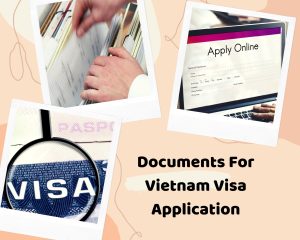
3/ How to apply for a Vietnam tourist visa for Indian travellers
Once you have gathered all the necessary documents, it’s time to apply for your Vietnam tourist visa. There are two main methods to apply for a tourist visa as an Indian traveller: through the Vietnamese embassy or consulate in your country or through the online visa application system. Let’s explore both options in detail.
3.1/ Applying through the Vietnamese embassy or consulate
To apply for a tourist visa through the Vietnamese embassy or consulate, follow these steps:
- Locate the nearest Vietnamese embassy or consulate: Visit the official website of the Vietnamese Ministry of Foreign Affairs to find the contact details and location of the nearest Vietnamese embassy or consulate in your country.
- Contact the embassy or consulate: Contact the embassy or consulate to inquire about the specific visa application requirements and procedures. You can also request the visa application form and any additional documents that may be required.
- Fill out the visa application form: Complete the visa application form accurately and legibly. Double-check all the information provided to ensure there are no errors or discrepancies.
- Gather the required documents: Collect all the necessary documents mentioned in the previous section. Make sure to have photocopies of each document as well, as they may be required during the application process.
- Submit your application: Visit the Vietnamese embassy or consulate in person to submit your visa application. Pay the applicable visa fees and any additional service charges, if applicable.
- Wait for visa processing: The processing time for a tourist visa can vary, but it typically takes around 5 to 7 working days. During this time, the embassy or consulate will review your application and make a decision regarding your visa.
- Collect your visa: Once your visa has been approved, you can collect it from the embassy or consulate. Make sure to check the validity dates and any additional conditions mentioned on the visa.
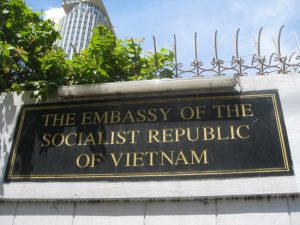
3.2/ Applying through the online visa application system
Alternatively, you can apply for a Vietnam tourist visa online through the official visa application system. This option is convenient and time-saving, especially if you do not have a Vietnamese embassy or consulate in your city. Furthermore, the required documents are also simplified. Here’s how to apply for a tourist visa online:
- Visit Vietnam E-visa website: Go to this link https://www.vietnam-evisa.com/apply/ to access the online visa application system.
- Fill out the online application form: Provide all the required information accurately in the online application form. This includes personal details, passport information, intended travel dates, and contact information.
- Pay the visa fees: Pay the applicable visa fees online using a debit or credit card. The fees vary depending on the duration of your stay and the type of visa you are applying for.
- Receive the E-visa: After submitting your online application and payment, you will receive a visa E-visa via email within a few working days. Print out this visa as you will need it during your travel to Vietnam.
- Arrive in Vietnam and get entry stamped: Upon arrival to Vietnam, you just need to show passport and E-visa. The immigration officers will check and stamp the entry permit on your passport.
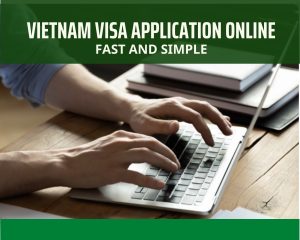
4/ Vietnam visa processing time and fees for Indians
The processing time and fees for a Vietnam tourist visa can vary depending on the method of application and the duration of your stay. When applying through the Vietnamese embassy or consulate, the processing time is typically around 5 to 7 working days. The visa fees can range from INR 2,000 to INR 4,000, depending on the embassy or consulate and the visa duration.
For online visa applications, the processing time is usually quicker, ranging from 2 to 3 working days. The visa fees for online applications vary based on the duration of stay and the type of visa, starting from around INR 2,500.
It is important to note that the visa fees mentioned here are approximate and subject to change. It is advisable to check the official website of the Vietnamese embassy or consulate or the online visa application system for the most up-to-date information on fees and processing times.
5/ Tips for a smooth Vietnam visa application process for Indians
To ensure a smooth visa application process, consider the following tips:
- Start the process early: It is recommended to start the visa application process well in advance of your intended travel dates. This will allow sufficient time for any unexpected delays or additional document requirements.
- Check the visa requirements: Before applying for a tourist visa, carefully review the specific requirements and documents needed. This will help avoid any last-minute issues or rejections.
- Keep your documents organized: Keep all your visa-related documents and photocopies in a safe and organized manner. This will make it easier to retrieve any required documents during the application process.
- Follow the instructions: Pay close attention to the instructions provided by the embassy or consulate or the online visa application system. Make sure to provide accurate information and adhere to any specific guidelines mentioned.
- Maintain a professional appearance: If you are required to visit the embassy or consulate in person, dress in a professional and presentable manner. This will create a positive impression and may influence the visa officer’s decision.
- Double-check your visa upon collection: Before leaving the embassy or consulate or upon receiving your visa approval letter online, carefully check all the details mentioned on your visa. Ensure the validity dates and any additional conditions are correct.

6/ Important things to know before traveling to Vietnam
Before you embark on your adventure to Vietnam, here are some important things to know:
- Weather: Vietnam experiences a diverse climate across different regions. It is advisable to research the weather conditions of your intended destinations and pack accordingly.
- Currency: The official currency in Vietnam is the Vietnamese Dong (VND). It is advisable to carry a mix of cash and cards, as not all establishments accept cards, especially in rural areas.
- Language: The official language of Vietnam is Vietnamese. While English is spoken in tourist areas and major cities, it is helpful to learn a few basic phrases in Vietnamese for communication purposes.
- Transportation: Vietnam has a well-connected transportation network, including trains, buses, and domestic flights. Research the best mode of transportation for your intended destinations and plan your travel accordingly.
- Health and safety: It is advisable to check with your healthcare provider regarding any necessary vaccinations or medications before travelling to Vietnam. Additionally, it is recommended to have travel insurance to cover any unforeseen medical or travel-related expenses.
- Respect local customs and traditions: Vietnam has a rich cultural heritage, and it is important to respect local customs and traditions. Familiarize yourself with the cultural norms, dress modestly when visiting religious sites, and be mindful of local customs.
7/ Popular tourist destinations in Vietnam Indian travellers should visit
Vietnam offers a plethora of captivating destinations for travellers to explore. From bustling cities to serene natural landscapes, here are some of the popular tourist destinations in Vietnam:
- Hanoi: The capital city of Vietnam, Hanoi, is known for its rich history, vibrant street markets, and delectable street food. Explore the Old Quarter, visit the historic Ho Chi Minh Mausoleum, and enjoy a traditional water puppet show.
- Halong Bay: A UNESCO World Heritage Site, Halong Bay is famous for its breathtaking limestone karsts and emerald waters. Take a cruise through the bay, go kayaking, and immerse yourself in the stunning natural beauty.
- Ho Chi Minh City: Formerly known as Saigon, Ho Chi Minh City is a bustling metropolis that offers a mix of modern skyscrapers and historical landmarks. Visit the War Remnants Museum, explore the vibrant Ben Thanh Market, and indulge in delicious Vietnamese cuisine.
- Hoi An: Known for its well-preserved ancient town, Hoi An is a charming destination that showcases the fusion of Vietnamese, Chinese, and Japanese influences. Explore the lantern-lit streets, visit the iconic Japanese Covered Bridge, and try your hand at traditional lantern-making.
- Da Nang: Located along the central coast, Da Nang is known for its beautiful beaches, vibrant nightlife, and modern attractions. Relax on My Khe Beach, visit the Marble Mountains, and admire the stunning Dragon Bridge.
These are just a few of the many incredible destinations Vietnam has to offer. Each region has its own unique charm and attractions, making it an ideal destination for all types of travellers.
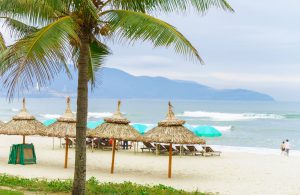
8/ Cultural norms and customs in Vietnam
Vietnam has a rich cultural heritage, and it is important to be aware of and respect the local customs and traditions. Here are a few cultural norms to keep in mind:
- Dress modestly: When visiting religious sites or rural areas, it is advisable to dress modestly and conservatively. Avoid wearing revealing or offensive clothing to show respect for local customs.
- Remove your shoes: It is customary to remove your shoes before entering someone’s home or certain establishments, such as temples or pagodas. Look for cues or signs indicating the need to remove your shoes.
- Greet with respect: When meeting someone for the first time or in a formal setting, it is respectful to greet them with a slight bow or a handshake. Addressing people by their titles or using appropriate honorifics is also appreciated.
- Dining etiquette: When dining with locals, wait for the host to start eating before you begin. It is considered polite to leave a small amount of food on your plate to indicate that you have had enough.
- Temple etiquette: When visiting temples or pagodas, remember to dress modestly and remove your shoes. Keep your voice low and be mindful of your actions to maintain a peaceful and respectful atmosphere.
By being aware of and respecting these cultural norms, you will enhance your overall experience in Vietnam and foster positive interactions with the locals.
9/ Conclusion and final tips for Indian travellers
Congratulations! You are now equipped with all the information you need to obtain a tourist visa for Vietnam as an Indian traveller. From understanding the different types of visas to gathering the necessary documents and choosing the right application method, you are ready to embark on your journey to Vietnam.
Remember to start the visa application process well in advance, follow the specific requirements, and be prepared for any additional interviews or document requests. Keep your documents organized, pay attention to the instructions, and maintain a professional appearance during the application process.
Once you have obtained your visa and are ready to travel to Vietnam, familiarize yourself with the local customs and traditions, respect the cultural norms, and be mindful of your actions. Explore the enchanting landscapes, immerse yourself in the vibrant culture, and indulge in the delectable cuisine that Vietnam has to offer.


